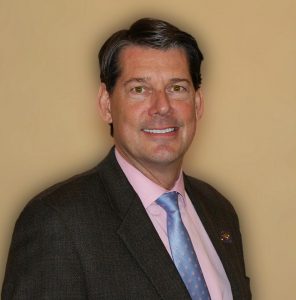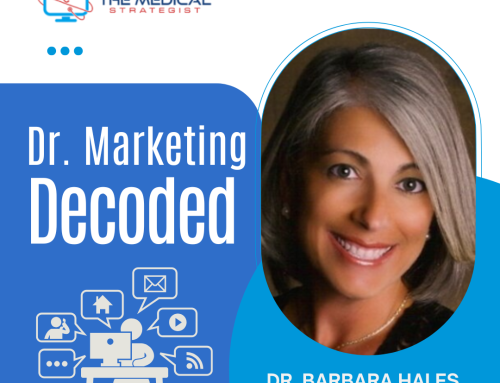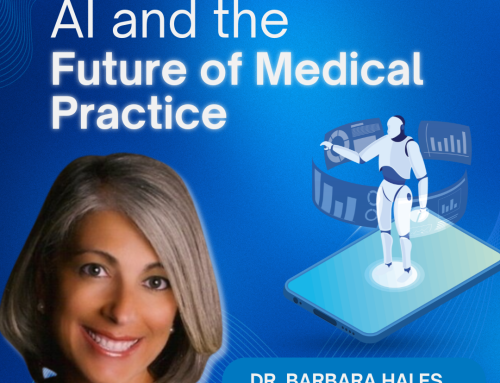Podcast: Play in new window | Download
Subscribe: RSS

Michael Athmer
In this episode, Barbara and Michael discuss:
- How to make your business life easier with a PEO
- Outsource your business payroll and taxes
- 1099 vs. W2
Key Takeaways:
” Look at employee leasing or PEO and you’ll be surprised that it can be a really big benefit at a very reasonable cost. It’s a lot easier for you without being distracted by all these employee-related administrative issues.” — Michael Athmer
Connect with Michael Athmer:
michael@michaelathmer.com
Connect with Barbara Hales:
Twitter: @DrBarbaraHales
Facebook: facebook.com/theMedicalStrategist
Business website:www.TheMedicalStrategist.com
Show website: www.MarketingTipsForDoctors.com
Email: Barbara@TheMedicalStrategist.com
Books:
YouTube: TheMedicalStrategist
LinkedIn: www.linkedin.com/in/barbarahales
TRANSCRIPTION (070)
Dr. Barbara Hales: Welcome to another episode of Marketing Tips for Doctors. I’m your host, Dr. Barbara Hales.
Today we have with us Michael Athmer. He is multi-lingual with 35 years of international sales and marketing management experience. Born in Montreal, Canada, he lived in Paris, France, Copenhagen, Denmark, and The Hague, the Netherlands, and moved here in 2000, starting an insurance agency and becoming sales manager for Southeast Employee Management Company.
Michael then progressed to management, regional manager for Human Capital, and now sales manager for United Tech Employee Management. Michael is past president of Toastmasters and BNI, past master board of Big Brothers Big Sisters, Human Resource Association of PBC, Hispanic Chamber, Beyond Blind Institute, Leadership Palm Beach County, and past Chairman of the Board for the Hispanic Chamber. Michael currently serves as president of the Leadership Business Council and the Business Referral Club. Welcome to the show, Michael.
Michael Athmer: Thank you. Wow. When you read out all that from my bio, then it’s like, wow, did I do all that?
Dr. Barbara Hales: One of the first things that people listening are probably wondering is why did you move around so much? What was your impetus for that? I mean, were you backpacking? Were you working and transferring? Why so many countries?
Michael Athmer: It actually was my parents. My father was with the Dutch embassy and he moved to Canada to serve as the Agricultural Attache for the Netherlands in Ottawa. That’s where he started. And my mom had moved there a year earlier to work at the embassy as a secretary. And she became my dad’s secretary and they get married. So from there, they moved to Washington, where my sister was born. They moved to Montreal where I was born. And then we moved. I mean with the embassy and we always get moved around. So, then that’s how we came from Canada. We went to Paris for two and a half years and then Copenhagen, and then he stopped working for the embassy because he wanted us to go to school in Holland. So that’s when he stopped working with the embassy, and he started working for the Department of Agriculture in Holland.
Dr. Barbara Hales: How did being associated with the embassy in your own way shape your life?
Michael Athmer: Well, it gave me the chance of traveling obviously, and also be in the diplomatic circles, which was interesting. So, you meet very interesting people. It’s really nice high life. We made a lot of connections, although I was fairly young because when we went back to Holland, I was 10 years old or nine years old. So the traveling was really in my early years.
Dr. Barbara Hales: Of all the countries that I mentioned you moved to, not one of them is Hispanic. How did you wind up becoming Chairman of the Board for the Hispanic Chamber?
Michael Athmer: Yeah, that’s interesting because I joined the chamber because I really enjoyed the family feel of the Hispanic Chamber and Hispanics, they’re all, I mean, warm and inviting people. I was really attracted to that. I joined the chamber but I didn’t speak Spanish.
Now, most of the people at the Hispanic Chamber were Hispanics that speak English so that made it easy. And I joined the board because I was excited about the chamber. And then at some point, I was nominated as the Chair of the Board. They wanted to make some changes and previous chairmen had not done that so they left it up to me to make some changes in the management. So, we got a new executive director and that changed the direction of the chamber.
But I never got to really learn to speak good Spanish. But what was funny that when my acceptance speech as the chairman actually started in Spanish. I had rehearsed several sentences. Because I speak five languages so my feel for language is pretty good. I really confused everybody in the room there because it sounded really Hispanic. And then after a couple of sentences, I said, “Since not everybody speaks Spanish, let me just continue in English.”
Dr. Barbara Hales: I imagine your fluency in French must’ve helped you a great deal.
Michael Athmer: Yeah. And German too. And obviously, Dutch where I’m from, which is still my native language, and then English. I don’t speak that much Danish anymore. Most of that has gone.
Dr. Barbara Hales: Well, most people here don’t either so you’re okay. In looking over your business, could you tell listeners what is a PEO?
Michael Athmer: Yes. A PEO is a professional employer organization also known as an employee leasing company. So what that is, it’s a company that takes care of your employee administration, then you can go to a PEO or to a leasing company and they take care of your payroll, your workers’ comp, your benefits, and your HR.
It’s like a one-stop-shop. And that started probably about 35 years ago, the payroll companies started. And about 10 years later, people were wondering, okay, so maybe we can get some more services down. So that’s when the PEO was born and they added the services that have the workers comp and the benefits, really a one-stop-shop made it really easy.
Dr. Barbara Hales: Well, that’s helpful for people who have a small practice or a small business, and they really don’t want to get into the minutiae of payroll for their staff. So why do you think our listeners should outsource their employee administration?
Michael Athmer: Well, most people that start a business, they’re passionate about what they do, what their business does, the service they provide, or the product that they sell. And they really don’t want to be distracted by employee administration, which most of these administrative tasks are costing money and are not producing any revenue. If you can get rid of that, if you can outsource that part and just focus on growing your business and making money and provide your service, that is something that is more enjoyable and more efficient if you just do that.
PEO
Some people are hesitant to outsource because they’re like, okay, I don’t want to lose control, but that’s really a misconception. When you outsource those services, you don’t really lose control. You just lose a headache because it’s really you still do your business. It’s still your business. You decide what you do and you tell us what to pay your employees. So, it’s really not. There’s really no control issue there. That’s really a misconception. What created that misconception is the fact that that’s why I don’t really use the term employee leasing and rather use the term PEO. Because employee leasing would suggest that like if you lease a car that you lease an employee. So it’s like you were … A lot of that was being confused with staffing companies, which we are not.
Really where that came from is that if you have said you have 10 employees and we come in and do your employee administration, we take over your employees and lease them back to you. What does that mean? That means that we are the employer of record. And you are the worksite employer. So according to the state, we are the employer, but you are still the worksite employer. You still tell the employees what to do. You run your company. So it’s only administrative. So it sounds scary, but it really comes down to just us doing the employee administration.
ONE-Stop Shop
We do that under our federal ID number. That’s the other thing. So it makes it very easy for your employee administration because we take care of your payroll taxes because it’s on our federal ID number. We take care of your unemployment. We take care of your worker’s comp claims. So we really handle everything for you when it comes to your employees and the employee administration. And you as a company, you only have one line item every week or every two weeks, whatever your payroll cycle is. If it’s weekly or biweekly or semimonthly or monthly, you just have one line item, which is payroll, which includes everything. So you don’t have to worry about the taxes. You’re never late with your taxes because we do that for you. So it really makes it easy. And it really takes a burden off your back as an employer not to have to deal with that.
Dr. Barbara Hales: So, what happens if an employee claims unemployment insurance? So technically since they’re your employees, you’re the one that’s responsible for the unemployment payment. And then you bill the employer or place where they’re working for that. I mean, how does that work?
Michael Athmer: Well, we handle the unemployment claim. We fight the claim for you. If somebody files for unemployment and he were not entitled to unemployment, like if somebody was let go for the cause then they would not be entitled to unemployment. So, then we fight that claim for them. I mean, if you let them go because there’s not enough work, I mean then it’s different. But there is still the co-employer relationship because the company is still the worksite employer. It’s still somebody that’s registered through their company so the unemployment will still affect them. Even though we fight it for them, they’re still responsible. Because I mean, we are the intermediary. We do it for them, but I mean, any costs related to that would still go to the company.
Dr. Barbara Hales: So if someone who was an employee was in this relationship with you, and they were no longer working for the person that has a contract with you, do they come to you and say, well, since technically I’m working for you, do you place them elsewhere?
Michael Athmer: No. That’s right. And that’s a lot of times the confusing part, so we’re not a staffing company. So we really only do employee administration for our clients. If somebody no longer works for our client, then they don’t work for us anymore either. I mean we help our clients if they have staffing needs because we are connected with several staffing companies. So we could help an employee too. But first and foremost, we work for the employer, not for the employee.
Dr. Barbara Hales: Yeah. Well, this relationship is something that is very new for me. I had actually never heard it before so I’m sure a lot of other people haven’t heard of it before. Is this a common occurrence now?
Michael Athmer: Yes. It’s more and more people discover the ease of the PEO to really have somebody take care of all that for them. You see that more in many areas, people outsource their HR and they outsource … the payroll was always already outsourced in most cases. Although I still run into cases where people still write checks, which is really surprising. I mean, bigger companies too that still write their checks every week. But it’s become more common and more accepted to just outsource your employee administration and don’t have to deal with that.
Dr. Barbara Hales: What is the advantage of that over having all of your employees as self-employed contractors where they take care of their own taxes?
Michael Athmer: Yeah. So, you mean that the 1099 situation?
Dr. Barbara Hales: Yeah.
Michael Athmer: Well, there’s a lot of misconception there, and a lot of things have changed in regards to that where people said, well, we just make them 1099, so we don’t have to worry about the taxes and they can still work for us. Well, the IRS came out with a list of 10 questions and any of these questions in regards to your 1099 employee, if you answer any of these questions, yes then your 1099 is really a W2.
Dr. Barbara Hales: What are the 10 questions?
Michael Athmer: The 20 questions are well, a lot of them have to do with direction. So if an employer tells you what to do, what time to arrive at your work, and what materials to use, I mean, every it’s really telling them exactly what to do then it’s really not 1099.
A 1099 is an independent. If you tell them, okay, I need this job done. And then they do it however they see, but they don’t need to get any direction from the employer. And also if they don’t do something wrong or they do something that they can be fired, 1099, I mean they can leave at any time. There’s really no contract per se that you have an employer-employee relationship. So it’s very, very different, but a lot of times, I mean, people do it because it’s easy. Now, some 1099s want to be 1099 because they don’t want to be an employee, but there is a lot of changes.
The other change that happened that they added as far as the requirement for 1099 or the difference is the economic reality check that they do now is that if as 1099 you make more than 50% of your income from one source, you’re considered the W2 for that source.
Dr. Barbara Hales: I see.
Michael Athmer: That upended the whole home care industry because the home health industry was all really based on 1099. So the registries where they had hundreds of 1099s registered and they would send them out to different home care companies. What happened was that if those employees say out of the 500, there were 300 employees that worked really primarily for one home care company for them, then they were considered the W2.
So the consequence now for the employers was that they have now more than 50 employees that are employees are not 1099s. And as an employer, you have to offer health insurance, for example, if you have more than 50 employees. If you don’t offer that, then there’s a $2,000 penalty per employee, and you have to pay payroll taxes and you didn’t have worker’s comp. So a lot of things are now the picture completely changes if you have instead of 500 1099s, now you got 300 W2s.
So that changed the whole dynamic there so a lot of registries closed and became actually employers and W2 employees, which was not a bad thing.
Dr. Barbara Hales: No. Well, if for no other reason having a contract with the employees eliminates the situation where you have trained these people to work for you and underneath you and after spending all of the time cultivating the relationship, you want them to stick around. You don’t want to have a constant revolving door in your office. So if our listeners would like to get a list from you or speak to you more about the employee leasing situation, how can they reach you?
Michael Athmer: They can reach you by phone, 561-644-8315. Or they can email me at mathmer@UnitedTechpeo.com. Or they can go to our website, UnitedTechpeo.com to get more information.
One thing that you mentioned in regards to how to keep employees, of course, if you don’t want to lose your employee, you’ve got to offer benefits. There’s a whole range of benefits that come with the relationship with a PEO as well. We can offer group health insurance, or we can offer a 401k. We can offer supplemental insurance. So there’s a lot of benefits that come with a PEO as well, where if you’re a smaller company, you might not be able to get the rates that we get. Or if you have only a couple of people that are interested, with us there is no minimum. So for group health insurance, there is. You have to have at least four people. But for supplemental, if there’s only one person in your company that wants it, then we can get them set up with that. So, it has a lot-
Dr. Barbara Hales: That’s a definite benefit.
Michael Athmer: Yeah, yeah.
Dr. Barbara Hales: So before we finish our conversation today, which was really very enlightening, is there anything that you would like to leave the listeners with?
Michael Athmer: Yeah, I would say there are so many things that can come at you and administration is not getting any easier. So why continue with the headache and the burden? Why don’t you just take a look at the employee leasing or PEO and just see how much that that would cost you? And you’ll be surprised that it can be a really big benefit at a very reasonable cost that will make it a lot easier for you to do your work without being distracted by all these employee-related administrative issues.
Dr. Barbara Hales: Why, indeed. Well, this has been another episode of Marketing Tips for Doctors with your host, Dr. Barbara Hales. Thank you very much for being with us today, Michael Athmer. And-
Michael Athmer: Thank you for having me.
Dr. Barbara Hales: For listeners, until next time.
Michael Athmer: Thank you.



